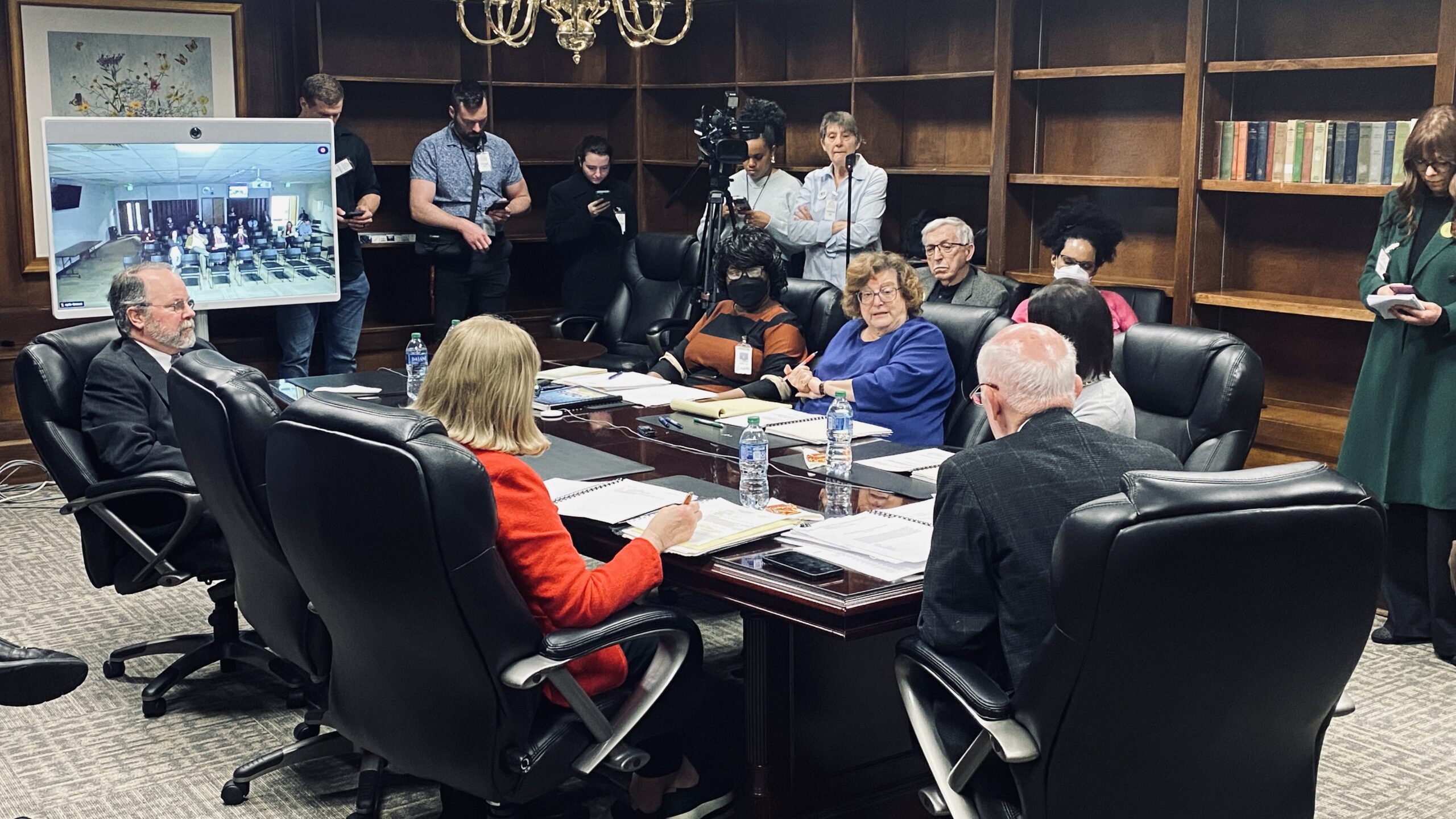|
Getting your Trinity Audio player ready...
|
The public comment session opens today on Gov. Kay Ivey’s proposed changes to the Alabama Public Library Service code, with 90 days of public comment before an April 30 hearing.
That timeline doesn’t sit well with Rep. Susan Dubose, R-Hoover, who criticized the APLS board during public comments at its meeting Tuesday for not moving the process along faster.
“Your noncompliance with approving the guideline changes are directly affecting our local libraries’ ability to secure state funding,” Dubose told the board. “I’m concerned about the timing here; I don’t know when this process is going to finish and if libraries are going to have time to submit their changes in guidelines in order to qualify for funds.”
It wasn’t clear what Dubose meant by local libraries not having time to submit changes in time to qualify for funding—libraries currently qualify for state aid under the existing administrative code and they would not have to add new policies to qualify until the code is actually adopted into law.
Dubose told APR after the meeting that local libraries ought to go ahead and create policies that align with Ivey’s proposed changes, and said the Legislature is not obligated to give any funding to libraries. That differs though from individual libraries failing to qualify due to not implementing policies required by proposed changes to the code that have not yet been implemented.
Dubose also doubled down on her assertion that the agency could be dragging its feet in making the changes, despite the board telling her that the changes have to go through the Legislative Services Agency, and the next possible publication date after their November board meeting was January 31.
“The bottom line is it was approved by the board on Nov. 16,” APLS Board Chairman Ron Snider told Dubose. “As I understand, this was the first publication date that was available.”
Dubose also questioned whether the agency could have chosen to have a shorter public comment period on the proposed changes. She told APR she would have liked to have seen the process move faster so that the changes would be in place before or during the legislative session as lawmakers make decisions on budgets and bills.
The proposed changes have come under fire from advocates of Constitutional librarianship, who argue the language supports censorship efforts. The Alabama Library Association submitted a counterproposal Tuesday with alternate amendments to the code that focus on parents supervising children and deciding what materials are appropriate for their children, and what materials aren’t.
The board also voted to disaffiliate from the American Library Association Tuesday, a surprise move despite many expecting the board to disaffiliate at the previous meeting. Board member John Wahl, who is also chair of the Alabama Republican Party, pushed the disaffiliation over concerns that the association is “pushing a Marxist agenda.” Wahl was absent Tuesday.
The board at its last meeting had decided to table the decision until its March meeting, when its current membership expires. But board member Angela Stokes said Tuesday the membership has become “a distraction,” and the four present board members voted in favor of not renewing the membership.
Hannah Rees, executive director of Clean Up Alabama, said the vote is a step in the right direction, but told the board that just ending its membership is not enough.
“Both the people and the Legislature have been asking for a complete severing of ties form the ALA—not simply not re-upping or not renewing our membership, but a severing of ties,” Rees said. “For us that includes financial, training, advocacy, programming, certification; all of the above.”
Rees said the ALA is influencing advocacy and policy in local libraries, although multiple local librarians have told APR they don’t heavily rely on the association despite appreciating its resources.
Matthew Layne, president of the Alabama Library Association, said he was a bit disappointed with the decision to leave the ALA, but said it won’t have much impact at local libraries.
The board also approved a resolution recognizing the years of service of Virginia Doyle, who Ivey kicked off the board after the November meeting after Doyle criticized threats to state funding of libraries. Doyle served more than two decades altogether on the APLS board.
The board quickly touched on its list of inappropriate books, which the board does not take a position on, but collects as a resource for librarians. The list currently has 83 books including 25-30 from Clean Up Alabama’s list of inappropriate books, and numerous Amish romance novels plus a series of children’s books by Rush Limbaugh and Christian non-fiction books dealing with divorce, sex and gender identity.
APLS also conducted a survey of public libraries in the state to see how challenges were affecting them. Of 84 respondents, only eight reported facing challenges. Between the eight libraries, they had seen 131 books challenged.
“I think what that shows is that most local libraries do not consider this to be a problem to the extent that we sometimes think it is,” Snider said.
People interested in the proposed administrative code changes are invited to share their public comments.
Written comments should be mailed or hand-delivered to Vanessa Carr, executive secretary at the Alabama Public Library Service,6030 Monticello Drive, Montgomery, AL 36117.
Written comments should be received at the Alabama Public Library Service by 4:30 p.m. CST on April 29, 2024. A public hearing will be held on April 30, 2024 at 10:00 a.m. CST at the above address. Requests to make oral comments should be sent to vcarr@apls.state.al.us no later than 4:30 p.m. on April 29, 2024. The order of oral comments will be established based on the dates that the requests are received at APLS. Oral comments will be limited to three minutes.




















































